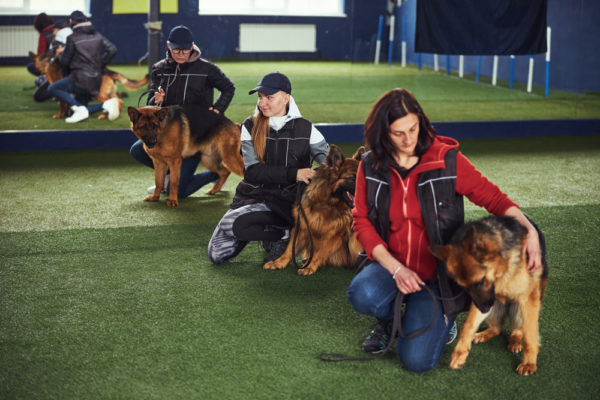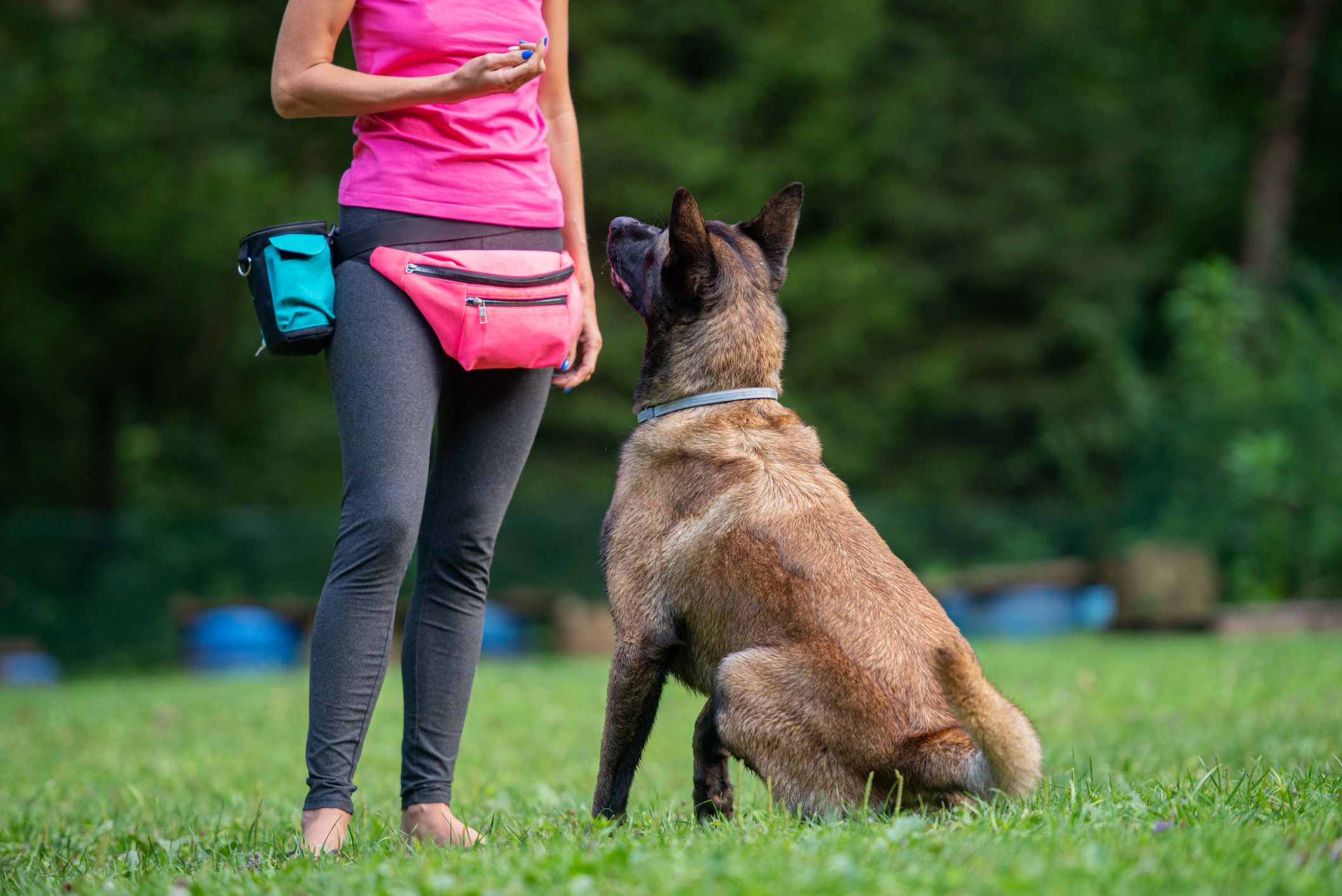Transform Your Dog's Behavior with Proven Dog Training Tips
Transform Your Dog's Behavior with Proven Dog Training Tips
Blog Article
The Ultimate Guide to Dog Training: Change Your Family pet's Habits
Effective pet training is necessary for fostering an unified relationship in between family pets and their owners. This overview not only intends to outfit you with the required devices to transform your pet's habits yet likewise welcomes you to check out exactly how these foundational concepts can lead to a deeper link with your pet.
Recognizing Dog Habits
Understanding canine behavior is crucial for effective training and a harmonious connection between dogs and their owners. A pet dog's behavior is influenced by a combination of genes, atmosphere, and experiences. Dog training. Identifying these variables permits proprietors to customize their training approaches to meet the specific demands of their animals
Pets interact primarily via body movement, vocalizations, and face expressions. For example, a wagging tail can suggest exhilaration or happiness, while a put tail might signify fear or entry. Observing these cues makes it possible for owners to react suitably, enhancing positive actions and attending to adverse ones properly.
In addition, comprehending the social structure of dogs can provide understandings right into their behavior. Pets are pack animals, and they grow in a structured setting. Developing regular policies and clear boundaries can stop confusion and promote a complacency.
Additionally, recognizing the natural instincts of canines, such as need to dig or chase, is essential. These impulses can be rerouted through ideal electrical outlets, such as play or exercise. By adequately comprehending these behavioral aspects, proprietors can promote a positive training experience, inevitably bring about a well-adjusted and loyal canine companion.
Essential Educating Methods
Effective dog training depends on a range of crucial techniques that can significantly improve the discovering process for both the dog and the proprietor. One fundamental method is positive support, which includes rewarding desirable habits with treats, appreciation, or playtime. This approach encourages pet dogs to repeat the behaviors that result in favorable end results, fostering a trusting connection in between the pet dog and proprietor.
One more secret technique is consistency in assumptions and commands. Using the same verbal hints and hand signals assists the pet dog comprehend what is needed, minimizing confusion and advertising quicker learning. Furthermore, establishing clear boundaries and rules is critical for efficient communication.
Socialization is additionally an important component of training. Exposing canines to various settings, individuals, and other animals aids them create ideal social abilities and lowers stress and anxiety in strange scenarios.
Finally, patience and timing are essential. Educating sessions ought to be constant however quick, making certain that the canine stays involved and responsive. By using these necessary techniques, proprietors can develop a favorable and structured training experience that advertises etiquette and strengthens the bond with their canine companions.
Creating a Training Set Up
How can a well-structured training schedule boost a canine's learning experience? A training routine gives uniformity, making certain that pet dogs receive regular, concentrated guideline. This predictability aids pets understand what is anticipated of them, reinforcing their knowing and permitting far better retention of habits and commands.
When creating a training routine, it is important to consider the pet dog's age, breed, and specific temperament. Youthful pups might take advantage of shorter, extra frequent sessions, while adult pets may flourish with longer, much less constant training durations. Integrating a variety of activities can likewise maintain the sessions involving, stopping monotony and advertising enthusiasm for learning.
Furthermore, organizing training sessions at details times of the day can help solidify a regimen. Pairing training with day-to-day walks or play can produce a favorable organization with knowing. It is also important to consist of time for support, such as deals with or appreciation, to reward wanted behaviors quickly.
Lastly, flexibility is crucial. While uniformity is crucial, being versatile to the canine's state of mind or power degree can boost their understanding experience. A well-crafted training timetable ultimately lays the structure for reliable interaction and a more powerful bond in between the dog and owner.
Typical Training Challenges
Regardless of having a well-structured training timetable, pet proprietors often run into various challenges during the training process. One usual problem is variance in hints and commands. When multiple family participants utilize different terms or tones, a dog may come to be baffled, preventing its capability to learn efficiently.
Another constant obstacle is interruption. Dog training. Dogs are normally curious animals, and external stimuli such as various other animals, sounds, or people can divert their focus during training sessions. This calls for proprietors to create a regulated environment or progressively introduce diversions to reinforce emphasis
Additionally, differing energy degrees can affect training end results. High-energy canines may struggle to calm down and focus, while more easygoing types might need additional inspiration to involve. Tailoring the training technique to fit the private pet dog's character is important for success.

Building a Solid Bond
A strong bond in between a canine and its proprietor is vital for effective training and general health. Dog training. This connection fosters count on, which is vital for effective interaction throughout the training process. When a pet really feels linked and safe and secure to its owner, it is most likely to respond positively to commands and signs
To develop this bond, consistency is crucial. Developing a regimen that includes routine feeding, workout, and training see page sessions aids develop a sense of security. Furthermore, positive reinforcement strategies, such as treats, appreciation, and play, strengthen preferred behaviors while strengthening the emotional link.
Socialization is an additional essential element of bond-building. Revealing your dog to different atmospheres, individuals, and various other pets helps them really feel a lot more comfy and positive, boosting the bond with their proprietor. Participating in tasks with each other, such as strolling, playing bring, or joining obedience training, advertises team effort and shared pleasure.
Verdict

Comprehending pet dog habits is vital for efficient training and an unified relationship in between canines and their proprietors.Efficient canine training counts on a selection of important strategies that can dramatically boost the discovering process for both the dog and the proprietor.In spite of having a well-structured training routine, canine owners frequently come across numerous challenges during the training process.In conclusion, effective dog training counts on an extensive understanding of canine habits, the application of necessary methods, and the establishment of an organized training routine. By emphasizing positive reinforcement and consistency, canine owners can considerably improve their animals' habits, eventually guaranteeing a harmonious partnership and promoting the wellness of both the dog and its environment.
Report this page